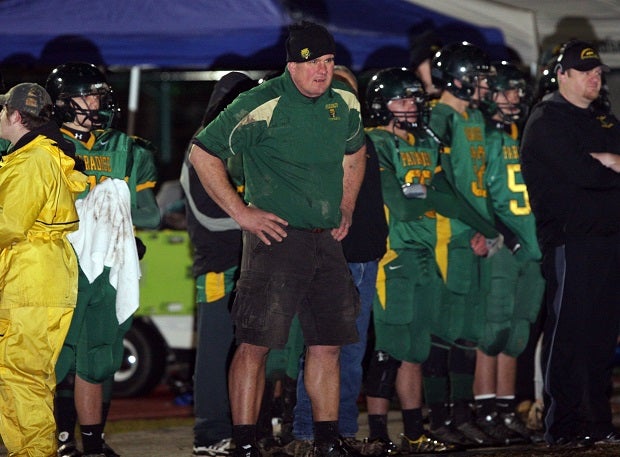Video: Top 10 most entertaining HSFB highlight tapes These prep stars have the best highlight films ever.
In the 1970s, the Head Coach was right.
In the 1980s, the Head Coach was right, but . . .
In the 1990s, the Head Coach might be right, but . . .
In the 2000s, the Head Coach probably is wrong, but . . . .
If you're a head coach, you're going to have conflicts. There really is no way around this inevitable fact. Coaching high school athletes and conflicts, unfortunately, go hand in hand. What separates good coaches from great coaches, however, is how they deal with these conflicts, to get on the other side of them.
The three most common conflicts high school head coaches have these days are: with parents, with administrators and with off-the-field player issues. These conflicts haven't really changed over the past 30 to 40 years, but what has changed is the frequency with which they arise and the way they're handled.
Here's how to get get on the other side of the conflict and keep the program moving forward.
Administrator conflicts
Administrators like to be in the know. Don't let them be blindsided. Often times, when head coaches and administrators have conflicts, there's been some sort of breach in the communication system in place. Perhaps an administrator opened the office door to a disgruntled parent, instead of sending that parent directly to the head coach. Or maybe the head coach failed to meet a specific district requirement, and is now in hot water.
No matter the case, getting to the other side of the conflict with administrators is usually about communication. Make sure to communicate well with your administrator, and if need be, apologize, bite the bullet and move on.
Parent conflictsQuite often, conflicts between parents and head coaches is all about playing time. It's wise for a head coach to outline their policy about discussing playing time in their handbook for their program or in a preseason parent meeting. This way all parents are on the same page, or at least should be. Some parents will just not understand that message because it i's about their son or daughter, who can do no wrong. So, when a parent conflict comes up, and it is about playing time, or something that you've outlined in your communication guidelines, remind them of the guidelines and refer them back to the policy.
Most parents are reasonable once emotions calm down. Don't go round and round with emails about the conflict; pick up the phone as soon as you can. This kind of communication will help both you and the parent get on the other side of it much sooner than back and forth emails which usually go downhill.

Coaching isn't always about X's and O's, but managing people and conflicts that might arise.
File photo by Ed Fisher
Twenty or 30 years ago the head coach wasn't expected to be so involved with their players "off the field" woes. Sure, some coaches naturally got involved in the lives of their student-athletes. But in 2018, it's almost a standard part of the job. If a kid gets in trouble on the weekend for drinking, drugs or violence, mom is going to most often call the football coach, not the math teacher. Off-the-field conflicts take up a considerable amount of time for many coaches. I really believe the most important key here in getting through these type of conflicts is showing your care and concern for the student-athletes.
Most of the time, your care and concern will help kids get through their conflicts because you will spend time with them, helping them to navigate through and around whatever their issue is. Off-the-field conflicts will go away when the head coach hits them straight on, shows their athletes care and concern, and then communicates with the parents to help dissolve and resolve the situation.
Chris Fore is a veteran Head Football Coach and Athletic Director from Southern California. He consults coaches and programs nationwide through his business Eight Laces Consulting.
